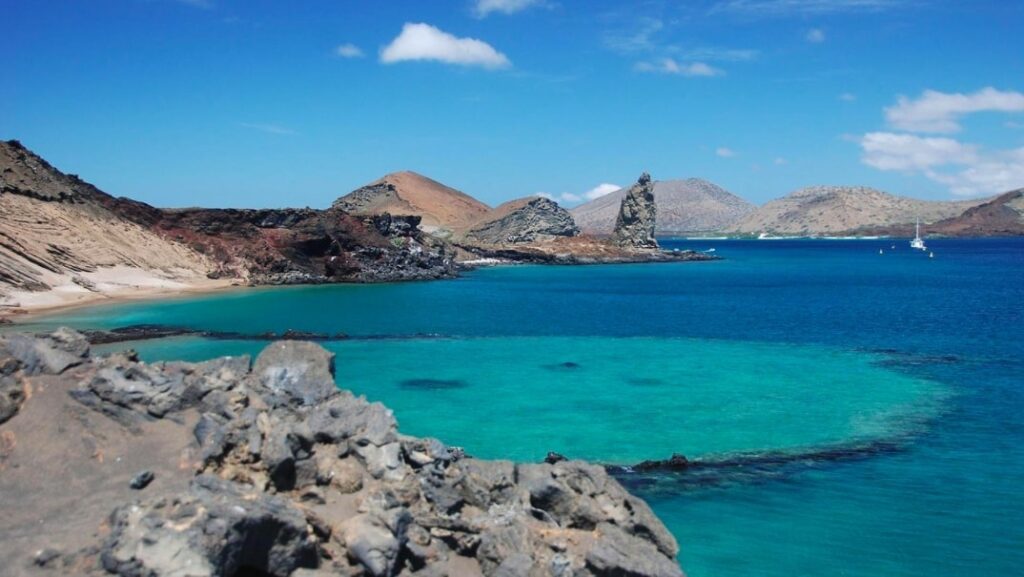By Simon Willis – KGM Climate Founder
As an avid traveler, I’ve been fortunate to witness the breathtaking beauty of our planet firsthand.
The wondrous Amazon, glorious Galapagos and Caribbean islands of the Americas stick fondly in my mind. However, all these magnificent places and their ecosystems are affected by human-induced climate change. Scratch that; EVERYONE is affected by climate change!
In this article, I want to break down the basics of how carbon emissions affect the environment. I’ll describe (in layman’s terms) the details of cause and effect connecting our actions to the health of our planet.
What are carbon emissions?
Firstly, carbon emissions, primarily in the form of carbon dioxide (CO2), are released into the atmosphere through various human activities.
Surprise surprise, the burning of fossil fuels like coal, oil, and natural gas for transportation, electricity generation, and industrial processes are the biggies! But also our work commute, our food purchasing, even closing a door! Check out How Bad are Bananas by Mike Berners-Lee to read more.
Another cause includes deforestation, which disrupts the natural balance and releases carbon stored in trees and soil. Yes, cutting down trees actually releases carbon. Grim.
Not wishing to hark back to my travels but for anyone who has flown over the Amazon, the swathes of deforestation is simply shocking.
What are the consequences of carbon emissions?
The primary consequence of carbon emissions is the gradual but steady warming of our planet.
Carbon dioxide and other greenhouse gasses trap heat from the sun, much like a blanket, causing the Earth’s temperature to rise—a phenomenon commonly known as global warming.
This rise in temperature has far-reaching consequences that affect our environment in various ways.
One of the most visible impacts of carbon emissions is the melting of polar ice caps and glaciers. As the atmosphere heats up, these icy landscapes are experiencing accelerated melting, leading to rising sea levels.
This, in turn, poses a significant threat to coastal communities and ecosystems, increasing the risk of devastating floods and erosion. UK residents check out this detailed map produced by the University of Manchester of the high-risk areas.
The delicate balance of our oceans is also at stake.
Science-jargon warning – The increased absorption of carbon dioxide by seawater leads to ocean acidification. When CO2 dissolves in the water, it forms carbonic acid, altering the pH balance and threatening the survival of marine organisms such as corals, shellfish, and plankton.
These creatures are the foundation of marine food chains, and their decline can have cascading effects throughout the entire ecosystem.
Carbon emissions affecting the climate
Carbon emissions contribute to changes in weather patterns, resulting in more frequent and intense extreme weather events. Even in the UK we felt the impact of 40 degree-plus heatwaves in 2022.
Heatwaves, droughts, hurricanes, and heavy rainfall become more prevalent, leading to disruptions in agriculture, water scarcity, and increased risks to human lives. Remember the 2022 floods in Pakistan?
Ecosystems around the world are also feeling the pressure.
Many plant and animal species are struggling to adapt to the rapid changes in their environments caused by global warming. Warmer temperatures can lead to the shifting of habitats, changes in migration patterns, and altered seasonal cycles.
These disruptions can disrupt entire ecosystems and threaten the delicate balance of biodiversity, potentially causing the extinction of numerous species.
Is there an answer to climate change?
We have begun to recognize the urgency of addressing carbon emissions. We are finally making progress (albeit slow) towards cleaner, more sustainable sources of energy. COP26 in Glasgow is still fresh in the memory, right?
Renewable energy, such as solar and wind power, emit little to no carbon dioxide during use, offering a promising path towards reducing our carbon footprint. And the good news is we are pushing these low-carbon solutions, but yes, not quick enough at the moment.
To sum up, carbon emissions have profound and multifaceted impacts on our environment. From the melting of ice caps to the acidification of oceans and the disruption of ecosystems, the consequences of our carbon-intensive lifestyles are undeniable.
As a traveler and global citizen, I personally know that it is crucial that we take responsibility for our carbon footprint and make conscious choices to reduce emissions.
Corny ending warning – by adopting sustainable practices and supporting initiatives aimed at combating climate change, we can collectively strive towards a healthier, more resilient planet for future generations to explore and enjoy.



